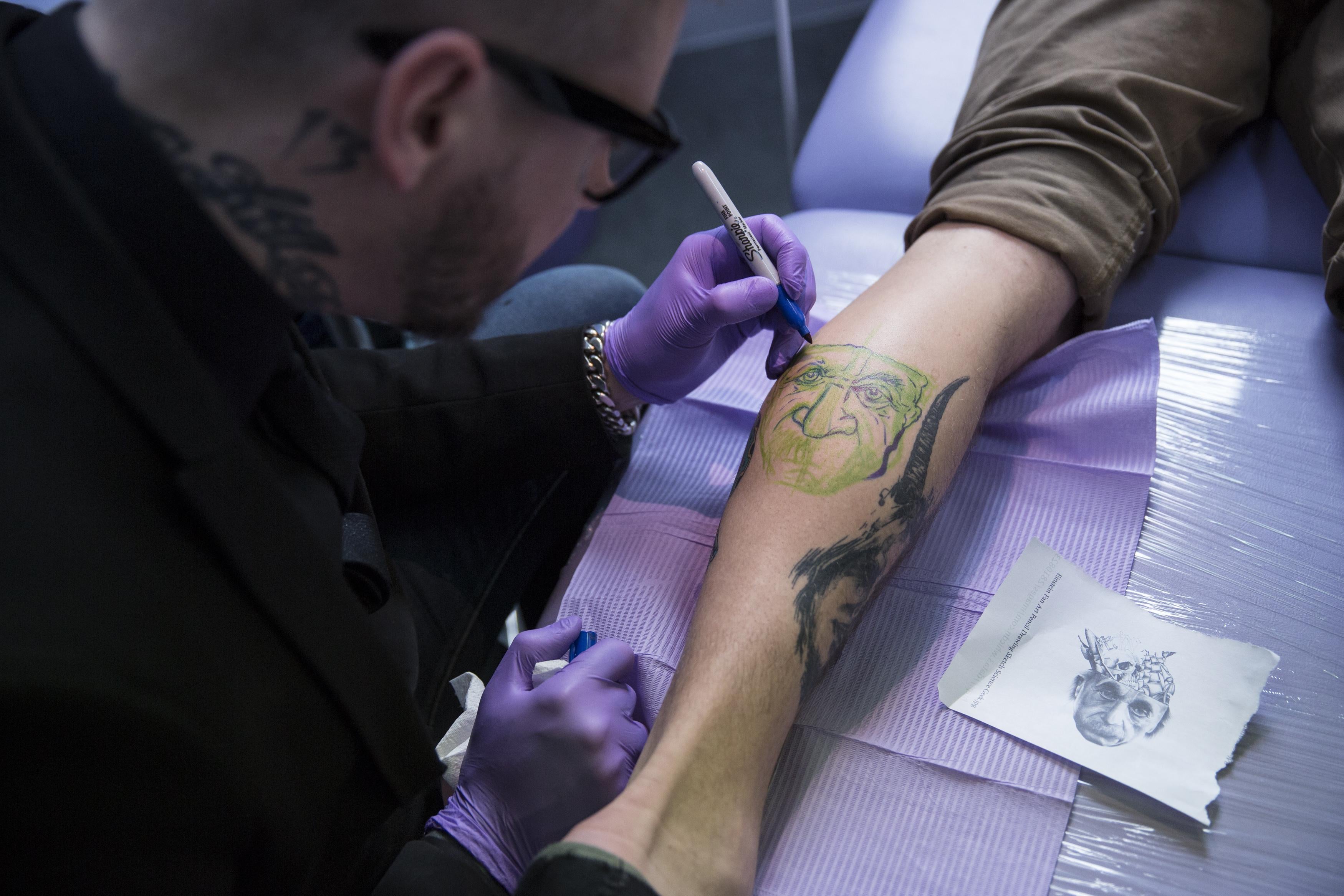This question originally appeared on Quora, the best answer to any question. Ask a question, get a great answer. Learn from experts and access insider knowledge. You can follow Quora on Twitter, Facebook, and Google Plus.
Answer by Kevin “Jack” Allaire, licensed freelance tattoo artist:
This is easy and difficult at the same time. The first thing you have to do is look through the portfolio of the artist. As with a lot of things, a person’s previous work speaks volumes. Make sure there is a large variety of different work in the portfolio: color, black and gray, traditional, realism. If a portfolio is filled with pieces of flash art (small, common, money-making pieces picked from off the wall), I would call that person a tattooist and not a tattoo artist.
Original designs of great detail are a sure sign of an artist who does tattoos as his medium of choice. And as silly as it sounds, price of the artist determines a lot.
The old adage of you get what you pay for generally rings true. You pay for quality. A typical price of an average artist is $75 to $100 an hour. Your better artists are generally two to three times that at a minimum.
Ask all the questions you want to! Good tattoo artists love to answer questions and provide comfort to their clients, from what kind of machines they use to what kind of ink they use to how long they’ve been at it and what they have a preference for doing.
The look and presentation of the shop itself speaks volumes about the artists in the shop. You won’t find a great tattoo artist in a dingy, dirty shop. Remember, this is technically a minor medical procedure, so run from a dimly lit, cramped, and dingy shop.
But the No. 1 rule of thumb is to look at an artist’s work—all of it! Look at the lines closely. Do they look nice and thin and clean and crisp? Do they look like they have bled, like holding a marker on paper too long? Does the skin look beat-up and red and bleeding? Look at the detail in the pieces in the artist’s portfolio. Minute details are the difference between someone who wants to get you in and out of the seat for money and someone whose focus is solely making a great tattoo. Look for saturation and boldness of colors. Packing solid color into skin is difficult if inexperienced, and most will beat up the skin, and you will see blood and areas of light color.
If you look through a portfolio and see a lot of the same simple, small pieces you would find on the wall, the person is most likely a tracer and not an artist. You wouldn’t trust a doctor to operate on you if he’s only ever treated colds, right? Variety and difficulty of the pieces in the portfolio truly speaks for itself.
Also, thanks to the Internet, you can search just about anyone and find reviews for him or her. Listen to what people say! These are permanent pieces on your body, and people won’t lie about their experiences. If an artist is uncomfortable with any of these things, gets annoyed, or has issues with anything you ask (don’t demand though), walk away. Also ask him if he does conventions, which ones, if he’s worked at other shops. Then look it all up.
Don’t make spur-of-the-moment decisions. Do your research. Again, it’s permanent. But don’t get me wrong, some artists have specialties they prefer to do. Some love portraits. Some love photorealism. Some love traditional. The key is: Is it original work, or is it stuff people come into the shop and point to the wall and say, “That one”? If you encounter an artist that has a specialized niche, he or she will be well-known for it. Generally, only established artists have the ability to specialize in one genre of work, and you will be able to tell from the quality of the work presented to you.
If all else fails, come to Quora and ask about a specific artist. Some top artists are Andy Engel, Kirk Alley, Mario Barth, Nikko Hurtado, Paul Booth, and Mike Devries. Also go to Sullen Clothing, Intenze, and Eternal Ink to look at the teams of artists they support. These are industry leaders that “sponsor” the best of the best, and you will get an idea for what truly great tattoo artist work looks like.
More questions on Quora:
